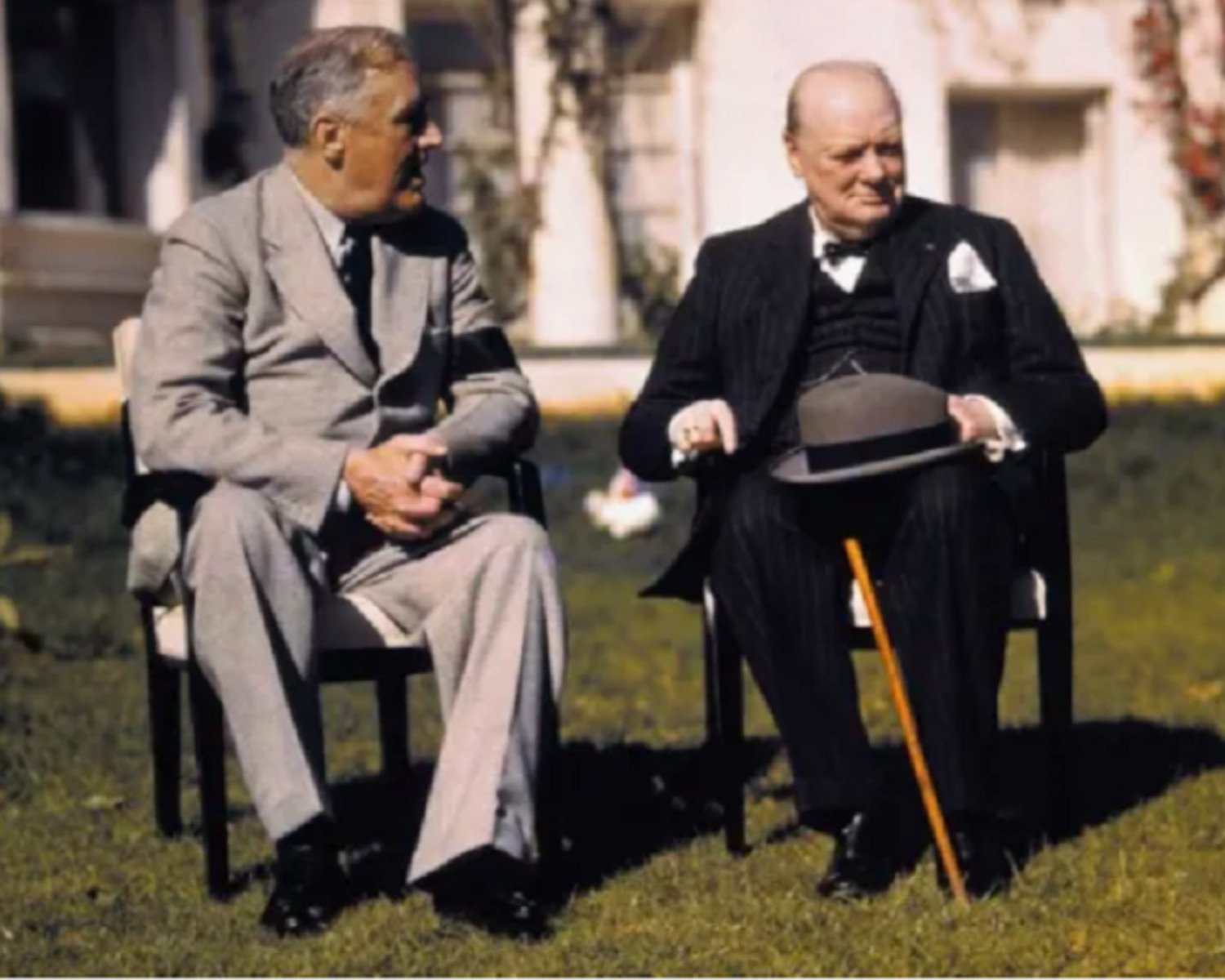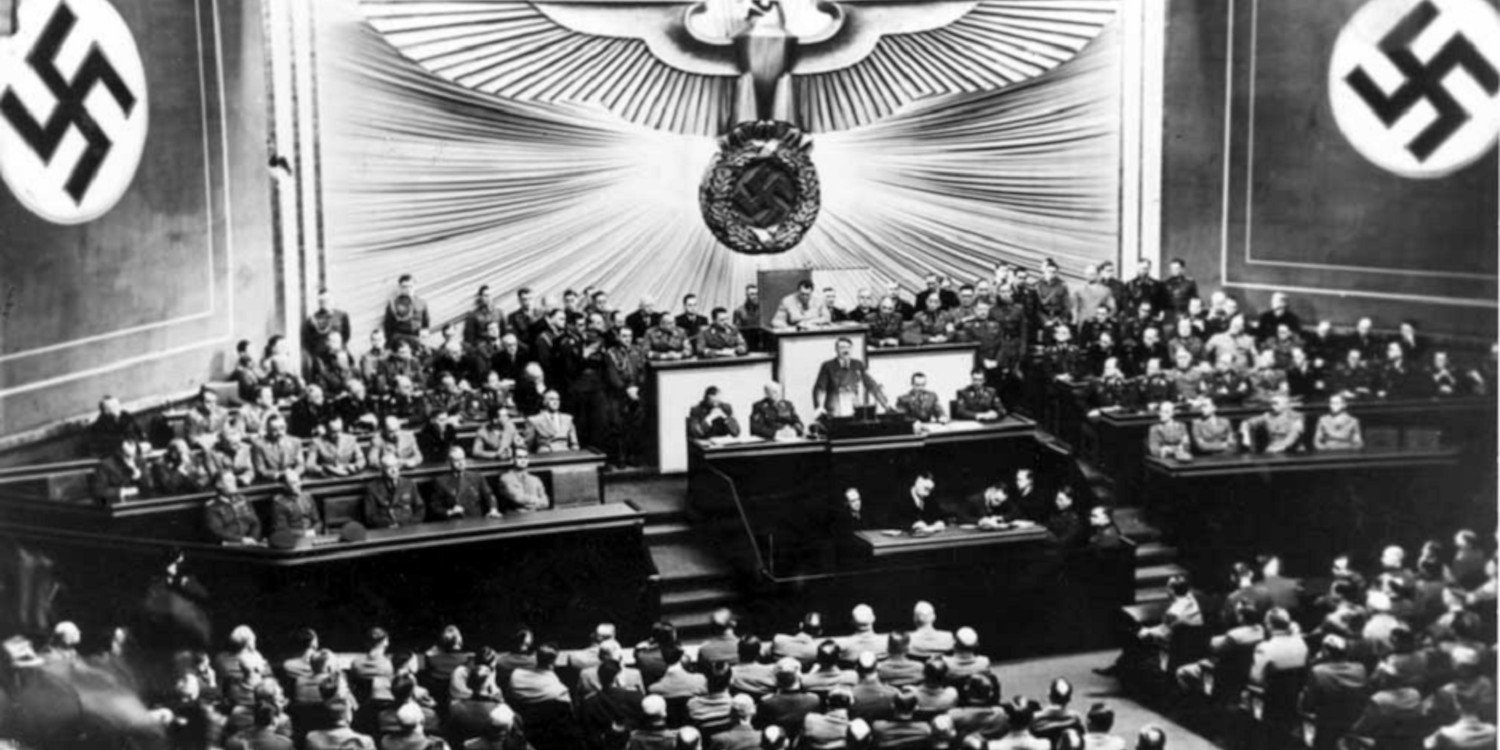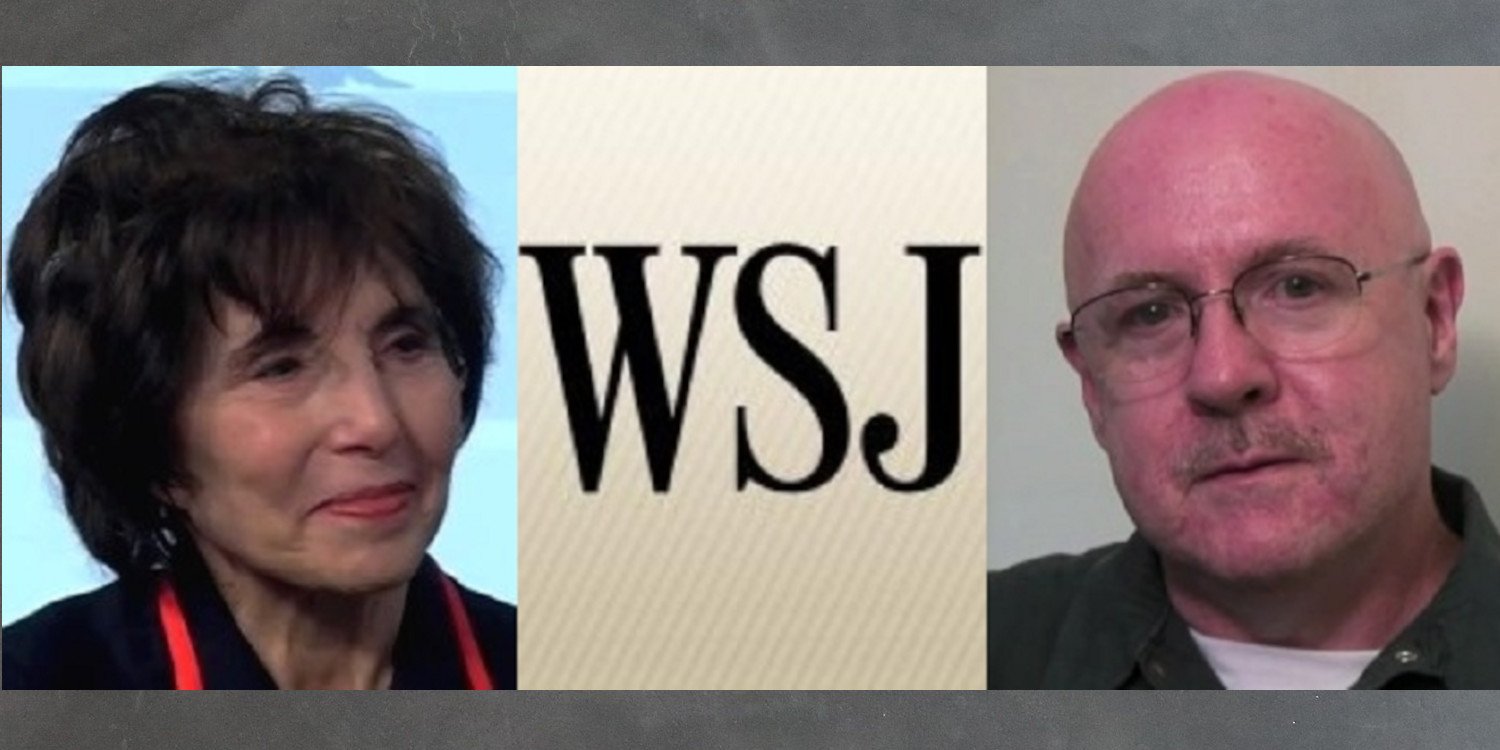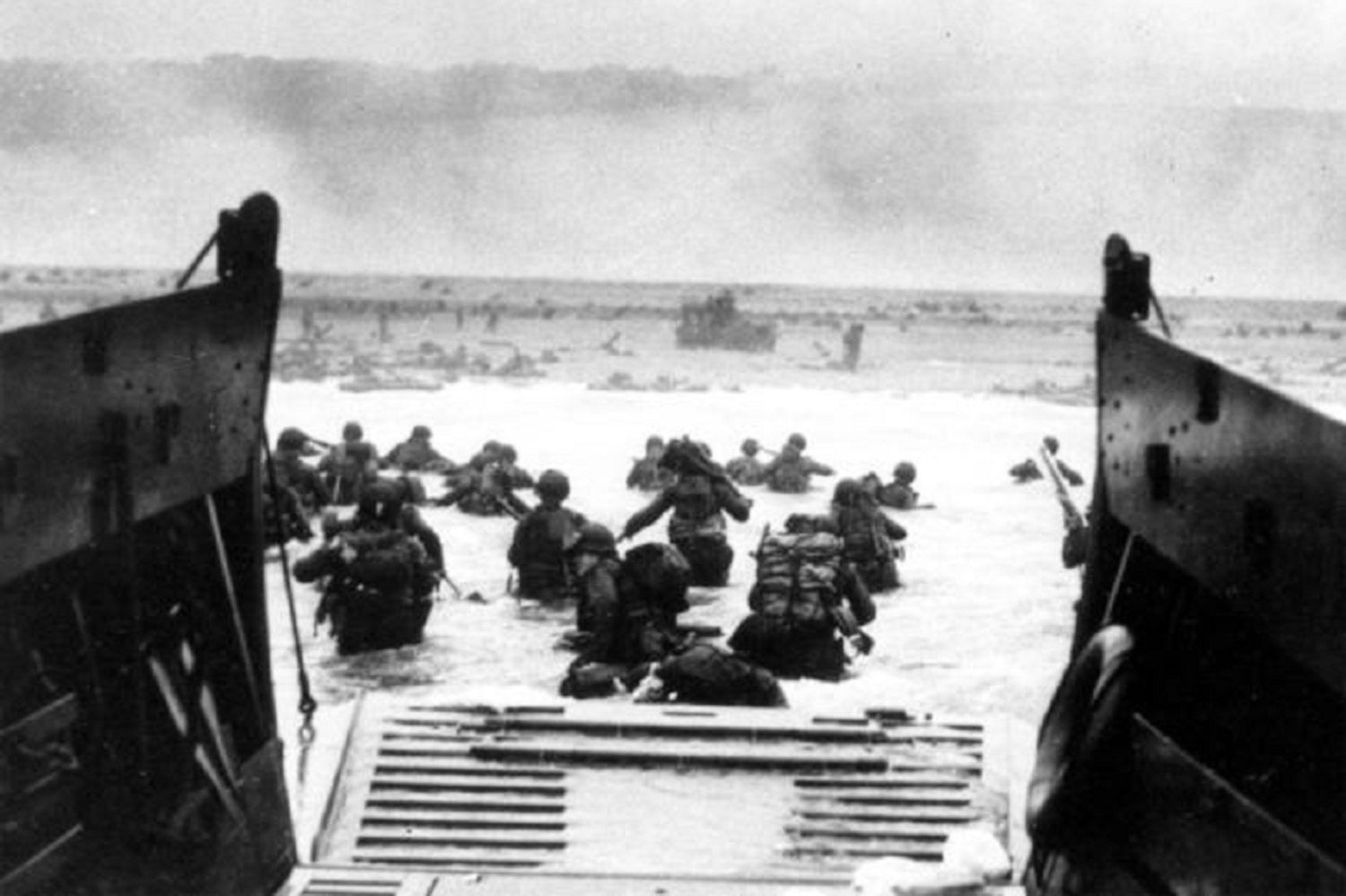From Dorothy Rabinowitz: ‘Say Not the Struggle Naught Availeth’
A Pulitzer Prize-winning journalist inspired poetic justice for a wrongly imprisoned priest with some obscure poetry that left a giant footprint on world history.
November 8, 2023 by Fr Gordon MacRae
Introductory Note: A few years ago I wrote a post to honor Veterans Day, and have reposted a link to it each year near November 11. History is important and if we ignore it we end up repeating it. In the photo above, US President Franklin Roosevelt and British Prime Minister Winston Churchill met in 1941 to discuss a possible American entry into World War II after the Nazi invasion of Europe cast the entire free world into darkness. Strangely, their final decision was prompted by their trading two obscure poems each delivering to the other a message about vital events in history. Winston Churchill’s message to FDR was a pivotal moment. It was recently sent to me by Wall Street Journal columnist Dorothy Rabinowitz who inspired hope for me in the tyranny of darkness I faced. This is that remarkable story.
+ + +
As most readers know, I work in a library and though it is technically a law library it still gives me access to a world of books. Some of what is available there is not very helpful and not exactly literary but I still try to keep classic literature from being discarded to make room for the junk that too many prisoners want to read, such as graphic novels and comic books. Graphic novels fly off the shelves while Les Miserables collects dust.
The library has a fairly large poetry section, but what most prisoners are looking for is not Robert Frost or T.S. Elliot. They scour the shelves for snippets of love poems to plagiarize for their letters to girlfriends, both real and imagined. Longfellow languishes on the shelf while Cowboy Love Poetry blazes happy trails through the prison mail room.
I had also been scouring the poetry section. After the struggle described in some of our posts — such as “Dying in Prison in the ‘Live Free or Die’ State” — I received one day a surprising message from Dorothy Rabinowitz at The Wall Street Journal with the subject, “Thoughts Between Deadlines.” It set me on a course of self-assessment in the face of struggle when she wrote:
“Do you have access to Google for information seeking? This isn’t the kind of information that moves legal proceedings, but it is a great source of empowerment nonetheless. I would ask you to look up just the line, ‘Say Not the Struggle Naught Availeth.’ It should bring up the poem, written by the Victorian poet, Arthur Clough, who never wrote anything in the least memorable, except this one whose powers were such that, a hundred years after it was written, Winston Churchill sent it to Franklin Roosevelt.”
With this, Dorothy Rabinowitz certainly had my rapt attention pushing all the buttons — history, literature, and irony — that would draw me into a course of discovery. Between 2005 and 2022, The Wall Street Journal published a series of four major articles about my struggle culminating in the most recent, “Justice Delayed for Father MacRae,” by Boston attorney Harvey A. Silverglate.
In all that time, Dorothy maintained a rather stolid interest, more inclined to uncover and report the facts of a difficult and nebulous story than its implications far beyond just me. In all these years, this message from her was the first contact that went to my struggle for justice and not just the discernment of facts.
With no access to Google or the internet, it took a few days for Dorothy’s message to get to me along with the results of the search she recommended. By telephone, I asked a friend to conduct the search that Dorothy recommended. To my surprise it took us to a remarkable but obscure poem, and I will get back to that in a moment. But first, the remainder of Dorothy’s equally remarkable message:
“The year was 1941. The English stood alone. America was not yet at war, but FDR was doing all within his power to get aid to them. The world faced a Europe overrun with triumphant Nazi troops. FDR had just won his fourth term and sent his new personal ally, the very Republican he had defeated — a heroic internationalist, Wendell Wilkie, who had been the standard bearer for an entirely isolationist Republican party — with a personal message of support to Churchill.”
There is more to the message, which I will get back to in a moment, but what made it so fascinating for me was my admiration for both Churchill and FDR. By 1940, Nazi Germany under Hitler occupied Poland, France and much of Europe with terrifying speed while America slept. The Battle of Britain (a very fine historical film) made clear that Hitler could not defeat the British air and naval forces under Churchill. Back to that in a moment as well.
Readers may have heard or read recent articles about newly discovered information about Pope Pius XII and the Vatican during the Nazi terror in Europe in the 1940s. A lot of ink has been spilled suggesting that Pope Pius was “Hitler’s Pope.” It was a slur derived from commentary about his reticence to publicly condemn Hitler and the Nazi Party during the war. The new information recently divulged centered on an archbishop advising Pope Pius who became concerned that Germany was going to win this war and a slaughter would ensue. It could have been the end of the Catholic Church. So with Nazi troops on his doorstep, and the rest of Europe under siege, Pope Pius became extremely cautious. The Catholic bishops of Holland issued a public statement in German condemning the Nazi deportation of Jews who had become Catholics to Auschwitz and other death camps. In retaliation, the Nazis raided convents and monasteries in Holland arresting anyone with Jewish roots. One result was the execution of Edith Stein who is now revered as Saint Teresa Benedicta of the Cross. This is a story I told in “Saints and Sacrifices: Maximilian Kolbe and Edith Stein at Auschwitz.”
Poetic Justice
The origin of the term, “Poetic Justice” has been difficult to nail down. It appears to have been first used in the Sixth Century B.C. in reference to the Greek poet, Ibycus. His works were collected in seven books, of which only fragments survive. The manner of his death created a legend. Dying from an assault by robbers, the legend held, Ibycus called on a passing flock of cranes to avenge him. Near Corinth, one of the robbers saw the flock of cranes and cried out, “Behold the avengers of Ibycus!” His cry betrayed him and the cranes devoured him, a death described as “poetic justice.”
Dorothy Rabinowitz sent me the most stunning example of poetic justice in the modern era. Fears of Nazi domination of the Atlantic made it easier for Franklin Roosevelt to defy the American isolationists by increasing aid to Britain. When the U.K. depleted its financial reserves, FDR replaced them with U.S. funding for arms production. Under the “Lend-Lease” act of 1941, there were no terms for payback. Dorothy continued in her message:
“FDR’s message to Churchill included the Longfellow poem that ended, ‘Sail on, Sail on, O Union strong and great — humanity with all its hopes and fears is resting on thy fate.”
This, of course, sent me on a hunt for its source. I found it in a collection of poetry by Henry Wadsworth Longfellow entitled, “The Building of a Ship” published in 1850. Remember that both FDR and Churchill had come to the realization that England alone held the fragile line against German invasion and global tyranny. Its collapse seemed just a matter of time. This epic poem sent by FDR to Churchill nearly a century after it was written concluded,
“Then too, sail on O Ship of State!
Sail on, O Union strong and great!
Humanity with all its fears,
With all the hopes of future years,
Is hanging breathless on thy fate!
Sail on, nor fear to breast the sea!
Our hearts, our hopes are all with thee,
Our hearts, our hopes, our prayers, our tears,
Our faith triumphant o’er our fears,
Are all with thee, are all with thee.”
I can readily see why FDR sent this to Churchill along with his diplomatic message about US funding for arms production. The demonic shroud of darkness that Hitler cast over all of Europe 83 years ago placed the rest of the world in a state of hopeless terror. Dorothy’s message to me continued:
“Churchill had no trouble grasping the importance of the pledge in this American poem, and recited it in a 1941 address to Parliament. As a return message, he sent to FDR the British poem I am writing to you about. You will see why I thought of you when I read it. Read it in the face of all the silences and rejections of appeals to justice that you have seen.”
Dorothy’s message was printed and snail-mailed to me. As soon as I received it, I called a friend to search for the poem she refers to. Its author is the British poet, Arthur Hugh Clough (1819-1861). Educated at Oxford, he became a tutor there during the Oxford Movement. Also called “Tractarianism,” one of the chief leaders of the Oxford Movement was Saint John Henry Cardinal Newman. Newman and the other adherents of the movement challenged a common view that the English Reformation constituted a complete break between Rome and the Church of England. The movement began in 1833 when the British government abolished ten bishoprics in Ireland. The Oxford Movement’s adherents warned that the Church of England was abandoning the principles of the 16th Century Reformers by allowing the Church of England to be dominated by secular authorities.
The Oxford Movement proposed that the Church of England could be saved from secularism only through a return to its Catholic origins. This became wildly controversial in the Church of England when Cardinal Newman published “Tract 90” in 1841 in which he attempted to prove that the Anglican 39 Articles of Religion were not inconsistent with Roman Catholic teaching. As a consequence of the Oxford Movement being suppressed, several hundred English clergy left the Church of England to become Roman Catholic, including Cardinal Newman himself. It was at this time that Arthur Hugh Clough left Oxford in protest against the Church of England’s 39 Articles of Religion, a struggle that informed his poetry.
Background (CC BY-NC-SA 2.0 DEED)
Say Not the Struggle Naught Availeth
As Dorothy Rabinowitz wrote in her message to me, Arthur Clough wrote little that was memorable except this one poem, “Say Not the Struggle Naught Availeth.” A century after its writing, it had an oversized footprint on history. Here is the entire poem sent from Churchill to FDR:
Say not the struggle naught availeth,
The labour and the wounds are vain,
The enemy faints not, nor faileth,
And as things have been, they remain.
If hopes were dupes, fears may be liars;
It may be, in yon smoke concealed,
Your comrades chase e’en now the fliers,
And, but for you, possess the field.
For while the tired waves, vainly breaking
Seem here no painful inch to gain,
Far back through creeks and inlets making,
Comes silent, flooding in, the main.
And not by eastern windows only,
When daylight comes, comes in the light,
In front the sun climbs slow, how slowly,
But westward, look, the land is bright.
Clough’s beautiful poem is a testament to the notion that whatever struggle we must take up and endure in this life, the struggle itself is worthy, even when what we fight against is unjust and impenetrable. This is sometimes difficult to see and accept, but what sort of person would I be if I did not struggle against injustice not only against me, but for all priests falsely accused for financial gain? Margaret Drabble, a poetry critic at Literary Hub wrote of the poem:
“This poem by Arthur Hugh Clough unfailingly brings tears to my eyes. It speaks of hope, and effort, and disappointment, and perseverance... The imagery is profoundly beautiful, and reminds me of the great beaches of my childhood, of Wordsworth’s immortal shore. I can feel those ‘tired waves, vainly breaking,’ and then the flooding fullness of the sea.”
Dorothy also described the poem in her message:
“Clough was unspecific in the references. There are references to military battles, but they are clearly only metaphors. Its imperishable eloquence is exactly the kind that fires resolve to win in the end, which I depend on, which we must all depend on. Read it, and let me know you found it.”
So, Dorothy, as you can see, I found it! “Say Not the Struggle Naught Availeth” is now enshrined on my cell wall. As you have suggested, I read it in the face of all the silences and rejections of appeals to justice that I have seen. It is a vivid reminder, as it was for Churchill and FDR, that some struggles are much bigger than their mere protagonists. This struck home for me when a prominent writer — an author and Catholic deacon in Pennsylvania where the priesthood and Church have been much maligned of late — published this review of Beyond These Stone Walls:
“There are few authentic prophetic voices among us, guiding truth-seekers along the right path. Among them is Fr. Gordon MacRae, a mighty voice in the prison tradition of John the Baptist, Alfred Delp, SJ, and Dietrich Bonhoeffer.”
— Deacon David Jones
With that, Dorothy, I stopped being a victim of this struggle and became a warrior.
+ + +
Note From Father Gordon MacRae: Adolf Hitler declared war on the United States on December 11, 1941, so, for America, the struggle was availeth after all.
Please share this post. Please watch and listen to Dorothy Rabinowitz in a five-minute WSJ interview on this story.
You may also like these related posts from Beyond These Stone Walls:
Hitler’s Pope, Nazi Crimes and The New York Times
Catholic Scandal and The Third Reich: The Rise and Fall of a Moral Panic
November 11 is Veterans Day, a day set aside to remember all those who bravely risked much to win and defend our freedoms. Please honor them with me by sharing my post, “Veterans Day: War and Remembrance and the Cost of Freedom.”
May the Lord Bless you and keep you.
The Eucharistic Adoration Chapel established by Saint Maximilian Kolbe was inaugurated at the outbreak of World War II. It was restored as a Chapel of Adoration in September, 2018, the commemoration of the date that the war began. It is now part of the World Center of Prayer for Peace. The live internet feed of the Adoration Chapel at Niepokalanow — sponsored by EWTN — was established just a few weeks before we discovered it and began to include in at Beyond These Stone Walls. Click “Watch on YouTube” in the lower left corner to see how many people around the world are present there with you. The number appears below the symbol for EWTN.
Click or tap here to proceed to the Adoration Chapel.
The following is a translation from the Polish in the image above: “Eighth Star in the Crown of Mary Queen of Peace” “Chapel of Perpetual Adoration of the Blessed Sacrament at Niepokalanow. World Center of Prayer for Peace.” “On September 1, 2018, the World Center of Prayer for Peace in Niepokalanow was opened. It would be difficult to find a more expressive reference to the need for constant prayer for peace than the anniversary of the outbreak of World War II.”
For the Catholic theology behind this image, visit my post, “The Ark of the Covenant and the Mother of God.”






